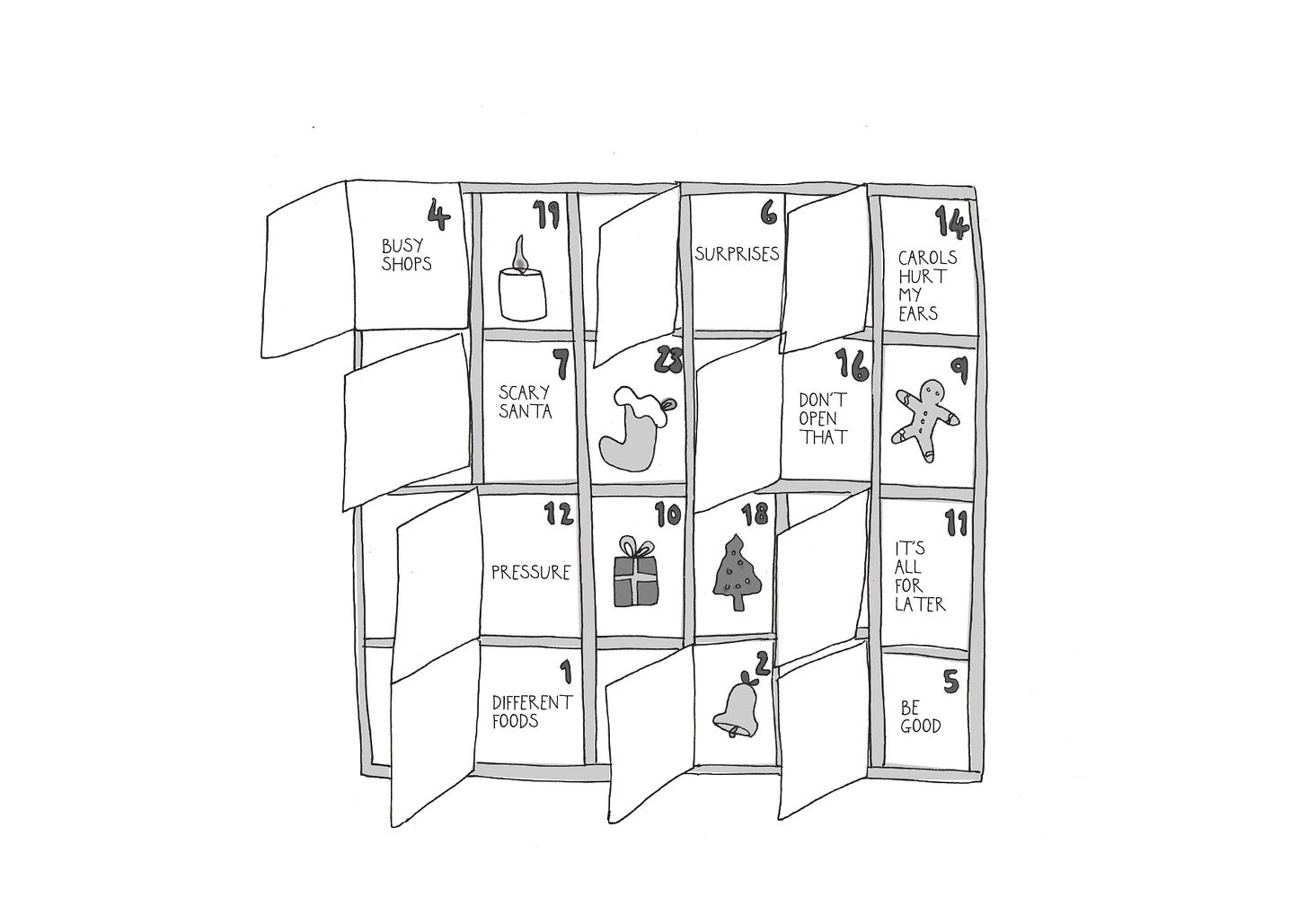One little boy I knew found Christmas particularly puzzling. “Why is it on the 25th?” he’d ask. “Why not the 23th or the 28th? Why do we eat mince pies then and only then? If they were really nice, wouldn’t we eat them all year round? Why do we keep all our presents for the same day? I’d rather have mine now” Adults around him didn’t know how to answer beyond ‘That’s just how it is’.
Over time some of those adults started to see things differently themselves. “Why do we do things this way, if actually we’d prefer to do something different?” they started to ask. In particularly, why the focus on Big Days which must be waited for and then recovered from? If you don’t like anticipation at the best of times, wouldn’t it be better just to make it less of a ‘thing’?
Some clear-sighted children bravely say they will have no part of this. They say they’d like their usual food and their presents unwrapped and given in private when they come through the door. They’d like to know exactly what they are getting in advance. No piles under the Christmas tree. No opening whilst others watch. No anticipation. One child I know said if they insisted on wrapping up the presents she’d tolerate it, but only if it was clearly written on the outside of every parcel exactly what to expect inside. And no surprises.
It takes a lot of determination to do this. The social pressure to participate in Christmas is intense. But when children assert themselves and make clear what they want, typically the adults around them are upset and feel that they are missing out.
“Come on”, they say. “It won’t be the same without you” or “You’ll be sad if you open your presents now because there won’t be anything on Christmas Day”. The child feels more pressure, even if they know very well that they won’t be sad – and if they actually feel sad now, because they don’t like having to wait.
What’s the answer? Let go of expectations and focus on what brings joy. If Christmas dinner whilst playing Minecraft works for you all, then go with it. If you prefer pizza, feel good about making the choice. Turkey dinners are arbitrary (and not even something which the whole world agrees on, by a long shot). There’s nothing like travelling to another country to see just how arbitrary many of your cultural traditions are. In France, Christmas is about seafood platters. In Slovakia, it’s about stuffed carp. In the UK we have crackers and mince pies, whilst in the USA they have candy canes and Christmas cookies. And in a lot of countries, presents are opened on the 24th, not the 25th or even Jan 6th – that little boy was right. It could be (a low-demand) Christmas every day. The choice is ours.
We’ll be talked about low demand Christmases in the last Art of Low Demand Parenting webinar of 2023. Eliza Fricker and I are back. Yes it’s recorded. Please share if you know parents who might benefit.
.





The anticipation, the waiting is an important part of the Christian observance of Christmas. In the weeks leading up to the celebration of the arrival of the Christ child Christians prepare as they retell the stories of the long awaited Savior. This makes the joy even greater on Christmas Eve and day.